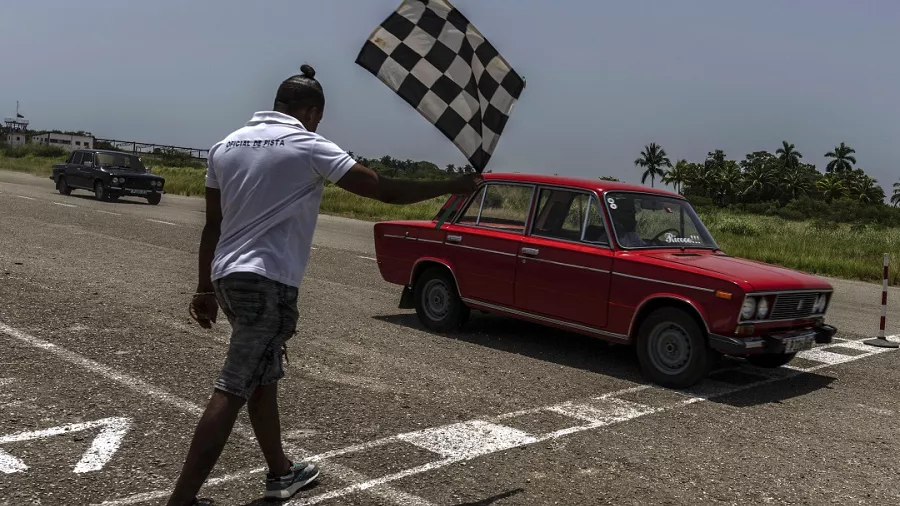
Cuban car and motorbike lovers fight to bring races into the light
In defiance of a six-decade-long ban on car racing in Cuba, hundreds of people gathered in scorching 41 degrees Celsius (105.8 Fahrenheit) heat on Sunday (Jul. 23) to witness around thirty cars and motorcycles compete on an old airstrip near Havana. The ban was rooted in concerns about safety, elitism, and promoting a sense of social indiscipline and daring, contrary to the values of the revolution.
Despite the ongoing economic crisis and the U.S. economic embargo, drivers and fans are now pushing for the legalization of these races as a legitimate sport. They seek to transition from the underground street racing scene, where the sport has thrived clandestinely for years, into an officially recognized activity.
The recent Sunday race in San Nicolás, about 60 kilometers southeast of Havana, was organized with all the necessary permits by the Friends of the Motor Club. Spectators discovered the event through word of mouth and social media, primarily Facebook.
In 2010, certain reforms in Cuba legalized the buying and selling of vehicles and houses and facilitated the establishment of small and medium-sized enterprises. Race organizers see this as an opportunity to garner more significant support and overcome the existing prejudice against their sport.
They hope that with the sport’s legalization, sponsors, companies, or individuals associated with motorsports will step forward to improve track conditions and provide assistance to drivers and mechanics who currently work without pay, purely for the thrill of seeing their vehicles compete.

